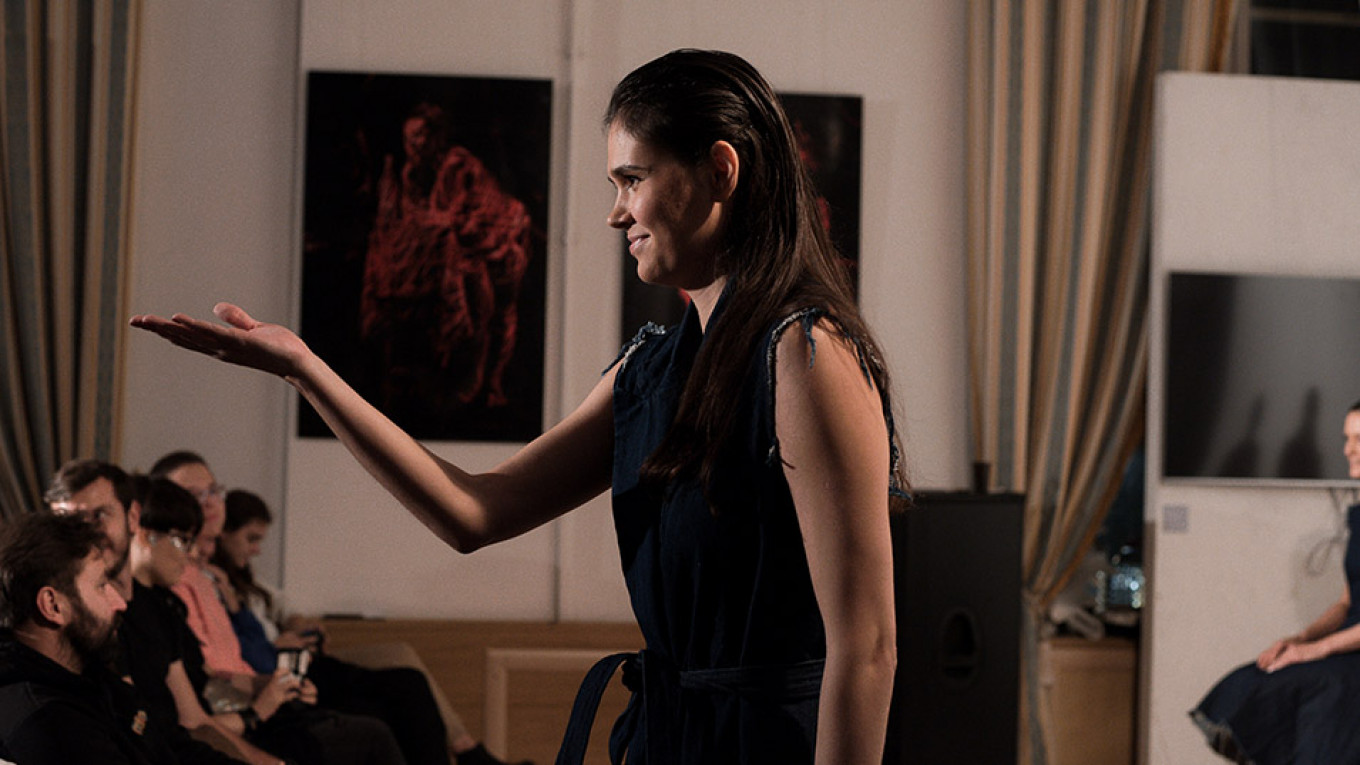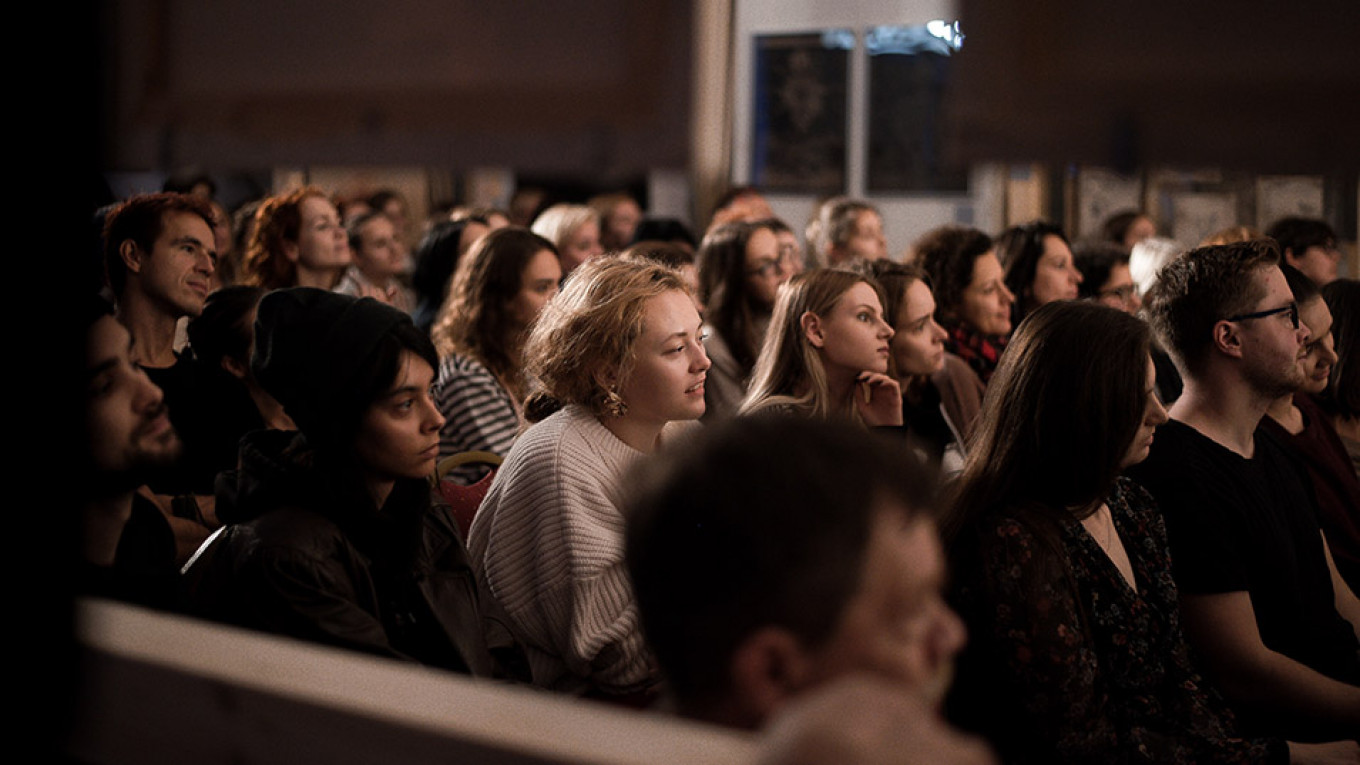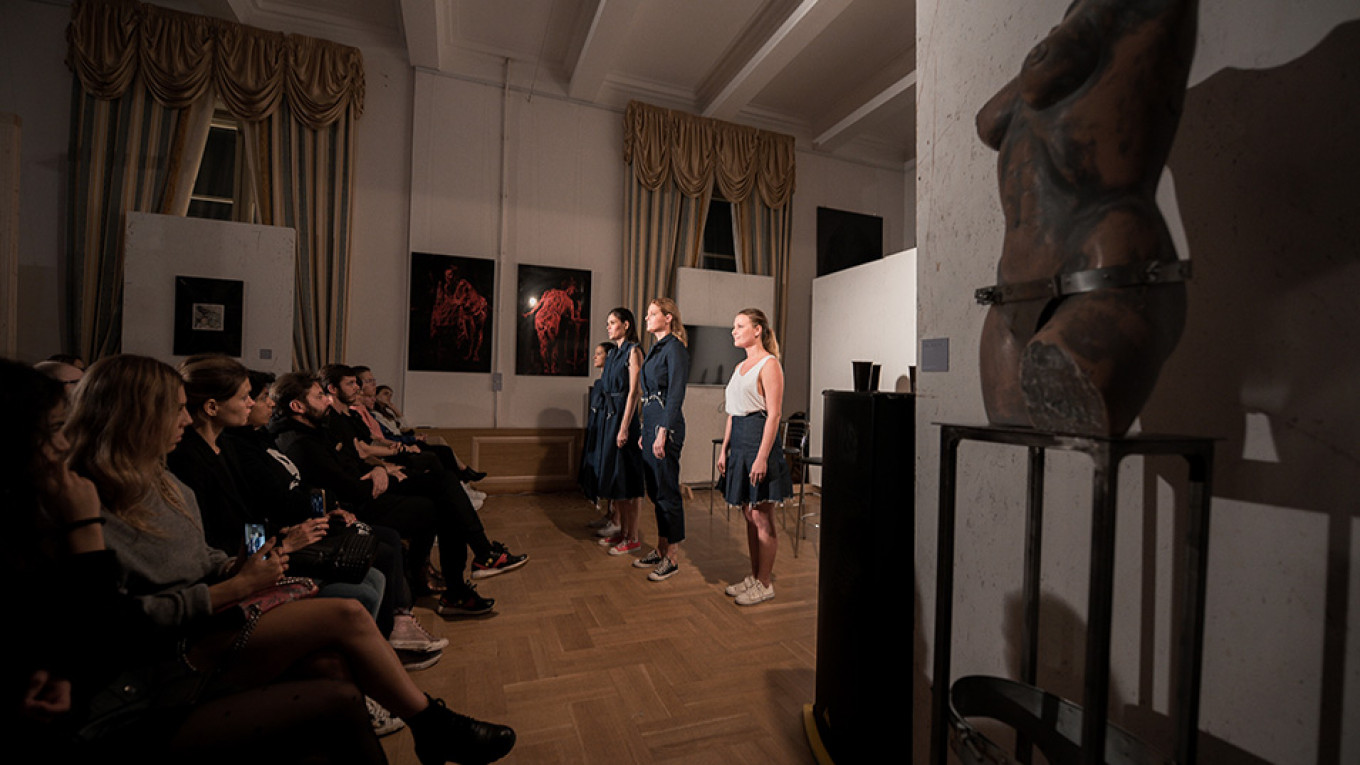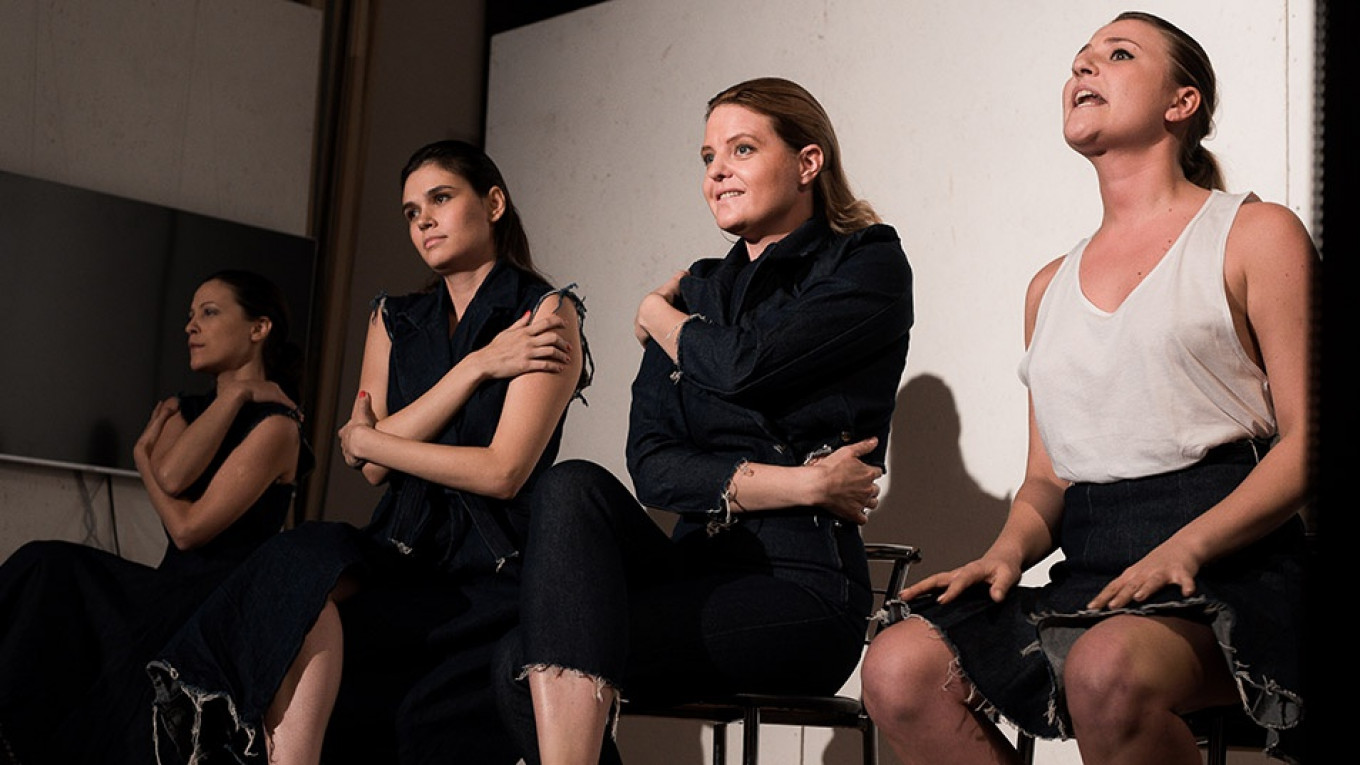In 1996, Eve Ensler’s play, “The Vagina Monologues," premiered in New York, and theater has never been the same since.
For the past two decades, this play about sexual identity, consent, rape, puberty, women’s bodies, birth, sexual pleasure and much more has been recreated for audiences around the world, changing over time from an appreciation of women’s bodies to what it largely stands for today: a political statement against rape and sexual violence.
In 1998, an activist movement called V-Day began, where ”The Vagina Monologues” and related performances would be staged all around the world to support of rape crisis centers and resources for women and girls. It is this project that sparked the idea for a Russian play.

A Russian Story
In the summer of 2018, artist and director Lidia Russkova brought the play to Moscow, rewritten and produced for a Russian audience. The production, “Она это мы” (“She is Us”) is performed in Russian and is inspired by the original play, shedding light on different issues that Russian women face.
Putting the play together wasn’t easy. In Russia’s generally conservative society, four women on stage talking about their vaginas while audibly demonstrating how people climax around the world - ranging from an American “Oh yeah, baby!” to an Irish Catholic’s guilt-laden ecstasy - is not the average Russian’s idea of of a respectable production.
“All the [actresses] are very talented, but since they aren’t used to this kind of language, and this kind of honesty and openness, it took time,” says Russkova. “Even now in rehearsals they tend to mute words that are hard to say aloud,” she says. “I need to make sure they feel comfortable and safe.”
“Art should be modernized in order to give the voice to those who were voiceless for too long."
For one of the four actresses, Natalia Anisimova, the play was an opportunity to confront her fears. “All my life I fought my fears. This topic was important for me, but I was afraid of it,” she says. But the play was also something she believed necessary to make an impact on Russian society. “When I read the script I understood how important it was, for me and for girls all over the world, to understand our body, to understand ourselves.”
The play is has become relevant in Russia’s political and human rights climate, too. Following the decriminalization of domestic violence last year, the production has drawn the support of Amnesty International as an important project that stands against the poor treatment and abuse of women.
“The decriminalization of domestic violence together with the recent harassment scandal in the State Duma are just part of the bigger problem of overall discrimination against women,” says Alexander Artemyev, Media Manager of Amnesty International Russia, referring to female journalists’ reports of harassment by a representative in the Russian parliament.
Throughout Amnesty’s involvement, the organization has noted the “mind-opening effect” of the performance. “The audience was laughing and applauding, reacting to the things they have never heard before in public,” Artemyev says.
“Art should be modernized in order to give the voice to those who were voiceless for too long.”

Russians React
As the actresses have grown increasingly comfortable with their roles and the stand the play makes, the audience has grown with them.
“I like it because it was very candid and interesting,” says Vsevolod, 22, at a recent staging of the play. “It’s a bombshell. And I liked shouting out loud the word,” he laughed, referring to a segment of audience participation where the crowd was encouraged to shout the Russian word for c**t to reclaim a word considered derogatory and vulgar.
Alexander, 45, thinks that because the performance was challenging to watch, it should be more widely seen by men. “I think these kinds of performances change something in you, like your perspective on yourself and on women,” he says. “Of course, it changes your outlook.”
For Irina, 46, it was refreshing to see women talking candidly about things usually not discussed. “The actresses managed to keep it from being vulgar or obscene,” she says. “It’s taboo to talk about intimate things, but we need to talk about it.” Although the audience was predominantly female, Irina hoped more men would see it.
“It’s difficult for men to listen to this,” says Irina. “It’s way too candid for them -- even for some women,” she says.

Vsevolod agrees, and believes that the more the play is seen in Russia, the more likely society is to overcome prejudice. “We don’t live in the time of ‘Domostroi’ when a woman’s only obligation was to cook, when she wasn’t allowed to work or speak,” he says.
“She should come forward and speak out loud now, to shine and say anything she wants.”
Russkova has been delighted by public response so far. “To my surprise, almost no one walked out!” she says. “I’ve been very surprised how men react. They’re so overwhelmed with the amount of honest images we put in front of them … it makes them feel like they’ve been led into the secret world of women’s bodies.”
“It’s taboo to talk about intimate things, but we need to talk about it.”
Moving Forward
While the production continues, Russkova has bigger plans, starting with growing “She is Us” to involve more artists. Her ultimate goal is to raise awareness of gender equality.
“We’re planning a book club. We’re planning an auction,” she says. “And we’re planning on putting this production up on a more regular basis.”
“This century is the century of women’s power, in art, in cinema, everywhere,” Anisimova adds. “I really think everybody in Russia needs this performance. With the help of this performance, I think we can change Russian men’s minds to think of women another way.”
“We all have bodies, we all have issues with our bodies, and we all have to overcome certain things,” Russkova says. “So we have to talk about it.”
For upcoming performances, follow the production on Facebook, on Instagram, or email them at she.is.us.rus@gmail.com for more information.
A Message from The Moscow Times:
Dear readers,
We are facing unprecedented challenges. Russia's Prosecutor General's Office has designated The Moscow Times as an "undesirable" organization, criminalizing our work and putting our staff at risk of prosecution. This follows our earlier unjust labeling as a "foreign agent."
These actions are direct attempts to silence independent journalism in Russia. The authorities claim our work "discredits the decisions of the Russian leadership." We see things differently: we strive to provide accurate, unbiased reporting on Russia.
We, the journalists of The Moscow Times, refuse to be silenced. But to continue our work, we need your help.
Your support, no matter how small, makes a world of difference. If you can, please support us monthly starting from just $2. It's quick to set up, and every contribution makes a significant impact.
By supporting The Moscow Times, you're defending open, independent journalism in the face of repression. Thank you for standing with us.
Remind me later.







